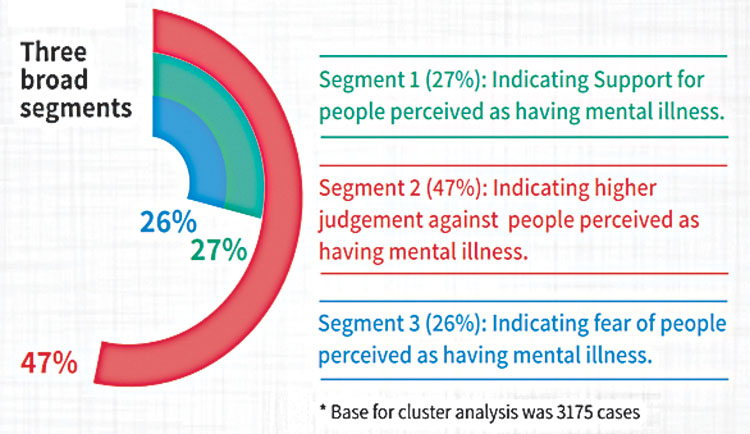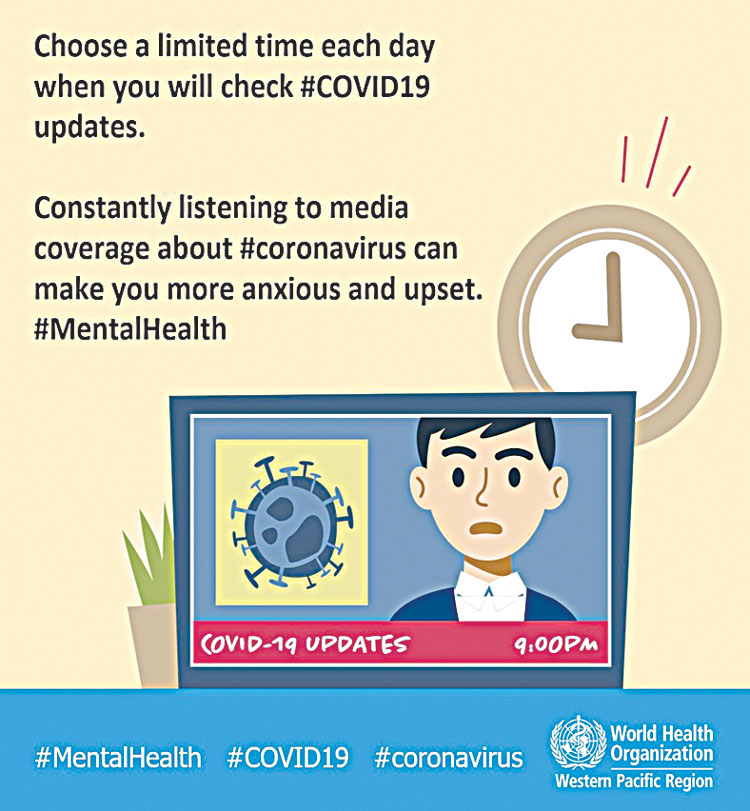As the coronavirus pandemic rapidly sweeps across the world, it is inducing a considerable degree of fear, worry and concern in the population at large and among certain groups in particular, such as older adults, care providers and people with underlying health conditions. The COVID-19 pandemic has had a major impact on the capacity of health systems to continue the delivery of essential health services. While health systems around the world are being challenged by increasing demand for care of COVID-19 patients, it is critical to maintain preventive and curative services, especially for the most vulnerable populations, such as children, older persons, people living with chronic conditions, minorities and people living with disabilities. Countries need to achieve the optimal balance between fighting the COVID-19 pandemic and maintenance of essential health services. WHO has been coordinating efforts across several regions and departments to support country implementation of targeted actions to reorganize and maintain access to safe and high-quality essential health services across the life course. COVID-19 is often more severe in people 60+yrs or with health conditions like lung or heart disease, diabetes or conditions that affect their immune system.

The COVID-19 pandemic means that many of us are staying at home and doing less in terms of social interactions and exercise. This can have a negative effect on your physical and mental health. As countries introduce measures to restrict movement as part of efforts to reduce the number of people infected with COVID-19, more and more of us are making huge changes to our daily routines. The new realities of working from home, temporary unemployment, home-schooling of children, and lack of physical contact with other family members, friends and colleagues take time to get used to. Adapting to lifestyle changes such as these, and managing the fear of contracting the virus and worry about people close to us who are particularly vulnerable, are challenging for all of us. They can be particularly difficult for people with mental health conditions. Fortunately, there are lots of things that we can do to look after our own mental health and to help others who may need some extra support and care.
The COVID-19 pandemic means that many of us are staying at home and sitting down more than we usually do. It’s hard for a lot of us to do the sort of exercise we normally do. It’s even harder for people who don’t usually do a lot of physical exercise. But at a time like this, it’s very important for people of all ages and abilities to be as active as possible. WHO’s Be Active campaign aims to help you do just that – and to have some fun at the same time. Remember – Just taking a short break from sitting, by doing 3-4 minutes of light intensity physical movement, such as walking or stretching, will help ease your muscles and improve blood circulation and muscle activity. Regular physical activity benefits both the body and mind. It can reduce high blood pressure, help manage weight and reduce the risk of heart disease, stroke, type 2 diabetes, and various cancers – all conditions that can increase susceptibility to COVID-19.
It also improves bone and muscle strength and increases balance, flexibility and fitness. For older people, activities that improve balance help to prevent falls and injuries. Regular physical activity can help give our days a routine and be a way to stay in contact with family and friends. It’s also good for our mental health – reducing the risk of depression, cognitive decline and delay the onset of dementia – and improve overall feelings.

Across the world, due to the spread of coronavirus disease (COVID-19), children are affected by physical distancing, quarantines and nationwide school closures. Some children and young people may be feeling more isolated, anxious, bored and uncertain.They may feel fear, and grief, over the impact of the virus on their families. Working with our partners, WHO will bring you content to help open the world of isolation. Watch out for resources and ideas to support parents and projects that will engage children in understanding the coronavirus, the challenges it brings to their world and what can be done to protect them. We will also introduce children to creative content that will entertain and provide a much-needed escape into the fun and magical worlds of imagination.

